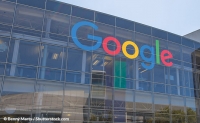
In a case that has put antitrust law on the front pages, the European Commission (EC) has fined Google a record €4.34bn for breaching competition rules after Clifford Chance (CC)’s client FairSearch triggered a long-running investigation.
Cleary Gottlieb Steen & Hamilton and Allen & Overy (A&O) were on the losing side as the EC found Google had illegally required manufacturers of smartphones running its Android operating system to pre-install its internet browsing and search engine apps.
Comparisons have been drawn with the Microsoft-Internet Explorer case a decade ago, which spelled the end of the tie-up between the Windows operating system and its web browser after the European Commission said it harmed competition.
Microsoft decided not to challenge the Commission’s decision and offered users the chance to switch to a competing web browser in what was ‘the beginning of a new Microsoft’, according to CC’s antitrust partner Dieter Paemen, part of the team acting for FairSearch alongside the firm’s chair of antitrust, Thomas Vinje. ‘We’ll have to see whether the same will be true for Google.’
EU competition commissioner Margrethe Vestager said yesterday (18 July) Google paid Android phone manufacturers to pre-install the Google Search app on their devices and made this a condition of licensing its Google Play app store, the main gateway to third party apps on Android. It had also prevented manufacturers wishing to pre-install Google apps from selling even a single smartphone running on open source versions of Android.
‘These practices have denied rivals the chance to innovate and compete on the merits,’ said Vestager. ‘They have denied European consumers the benefits of effective competition in the important mobile sphere. This is illegal under EU antitrust rules.’
The decision brings to an end a case that started more than five years ago. In March 2013 company consortium FairSearch complained to the Commission that Google used its Android mobile operating system, which is currently run on around 80% of all smartphones, to spread its online advertising monopoly to phones. Four other complaints were filed in the following years, by independent App store Aptoide, software developer Disconnect, Russian AI company Yandex and pressure group Open Internet Project.
FairSearch turned to CC’s antitrust veteran Vinje, who also advised the group in a case that brought another multibillion-euro fine against Google, as the EC ruled in June last year that the company had illegally promoted its own comparison shopping service above others in its search engine results.
The Commission launched its investigation into the Android case in 2015, while Google instructed Cleary’s Nicholas Levy and Thomas Graf as well as A&O’s Juergen Schindler.
The decision and record fine is now likely to add to claims that the EU is targeting US companies amid colder relations triggered by president Donald Trump’s stance on trade. However, antitrust experts reject the allegations: ‘The type of abuse the Commission is talking about here is very well established,’ said Bird & Bird’s co-head of competition and EU law Peter Willis. ‘Any company that uses its dominant position in one market to dominate in any other is at risk.’
Willis welcomed the fact that the case ‘raises the profile of competition enforcement in general’: ‘Even if you treat the Google case as quite specific, these things do get noticed in boardrooms. One of the consequences of the cases over the last few years is that we find that executives have a little bit more understanding and knowledge of competition law than was the case ten years ago.’
Making up less than 5% of Google’s $110bn annual revenue, yesterday’s record fine is unlikely to amount to much more than the proverbial drop in the ocean. What is more significant in the eyes of antitrust experts is the fact that Google has three months to stop its anti-competitive practices or face a penalty of up to 5% of the average daily turnover of its parent company Alphabet.
Google has already announced it will appeal the decision just like it did with last year’s fine, but it will have to apply separately to suspend the application of the sentence while the appeal is heard. If the application is rejected, the firm will have to start doing things differently.
CC’s Paemen played down the impact of the changes for Google’s business model: ‘There are contractual restrictions they will need to remove,’ he said. ‘But otherwise there is nothing that changes.’ However he added: ‘The bigger issue is whether this will lead to a wider change of the behaviour of Google like Microsoft did.’
Miles Trower, competition partner at TLT, commented: ‘We appreciate the consistency of user experience when using Android devices, and probably some cost savings too, but size matters, and mobile search is becoming increasingly important. While there are all manner of cost, consistency and consumer experience justifications for Google’s model, the practices that the Commission has challenged serve to reinforce Google’s pre-eminent position in online search – albeit users can choose other engines if they want – and some might say the Commission’s approach ignores what users value most.‘
While it could be observed that Google’s decision to appeal signals that the company is unlikely to give up any time soon, it should be remembered that the fight is open on more than one front, with the EC also investigating restrictions that Google has placed on the ability of third party websites to display search advertisements from Google’s competitors – the AdSense case.

